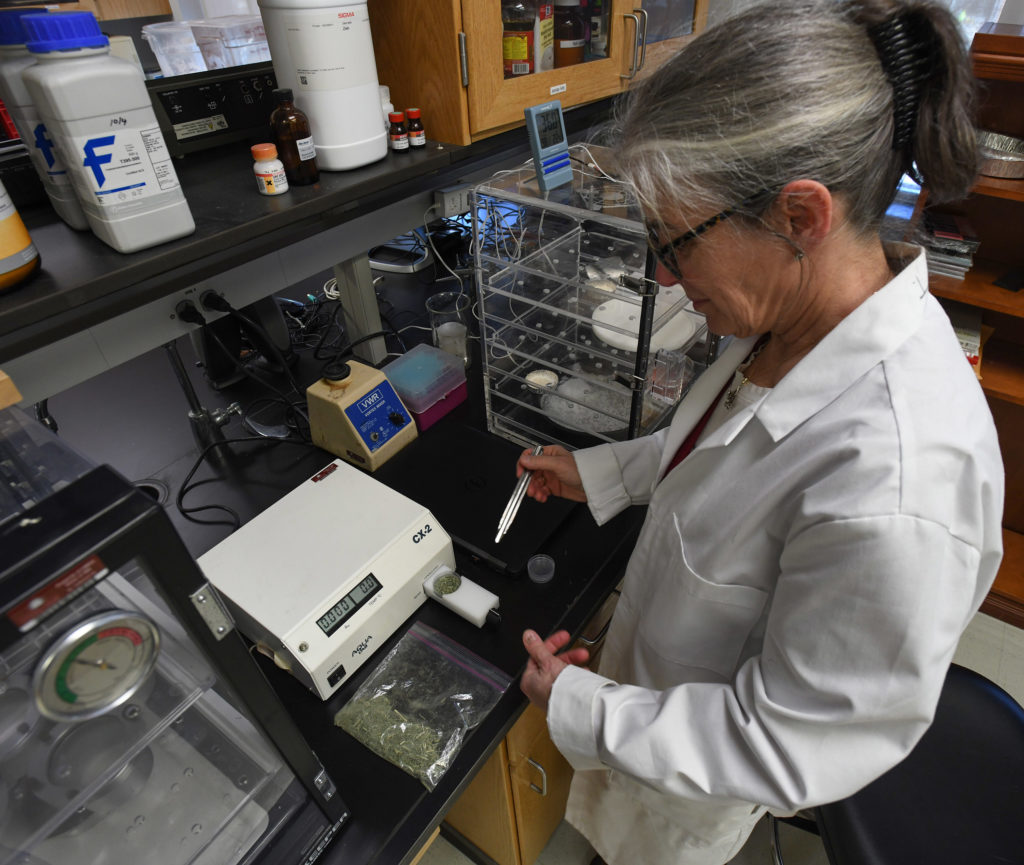
UMES Extension will be embarking on a pilot program that will offer growers of specialty crops lab services to help ensure that their value-added products meet food safety benchmarks. A nearly $36,000 specialty crop block grant received by the Agricultural Law Education Initiative includes funds that will subsidize testing at the UMES Food Science Lab for two samples per grower for up to 10 growers.
“Some specialty crop products may require lab testing to make sure that microorganisms cannot grow in the product,” said Dr. Melinda Schwarz, a food safety specialist with UMES Extension. “In the nearly two years that I’ve worked at UMES, I’ve fielded questions from a number of growers about issues such as how to measure water activity and moisture content in dried herbs, or how to determine the pH of elderberries or tomatoes. Processing samples from growers at no cost will help them ascertain whether they are correctly processing their products to meet Maryland Department of Health specification.”
Dried herbs, for example, must have a certified water activity level of less than 0.85. The free pre-screening, Schwarz said, will allow growers to tweak their drying process to meet the benchmark before they have to pay a certified lab for testing as part of the health department’s requirements.
Another service under the program is pH testing of canned foods. The service is relevant to specialty crop growers, she said, because value-added canned goods that are naturally acidic (pH of 4.6 or less) are covered under the guidelines for Maryland Cottage Food Business and do not require the On-Farm Home Processing Business license to sell to customers within the state. However, products with a pH higher than 4.6 have a greater risk of Clostridium botulinum contamination and require the producer to apply for a processing permit.
One of the objectives of the pilot program is to determine the continued need for food items testing through UMES Extension lab services. If demand is demonstrated, Schwarz said, the program has the potential to be expanded.
Growers interested in having their products tested can contact Schwarz at mschwarz@umes.edu.
Gail Stephens, agricultural communications and media associate, University of Maryland Eastern Shore, School of Agricultural and Natural Sciences, UMES Extension, 410-621-3850, gcstephens@umes.edu.
Photo by Todd Dudek, agricultural communications, University of Maryland Eastern Shore, School of Agricultural and Natural Sciences, UMES Extension, tdudek@umes.edu.

